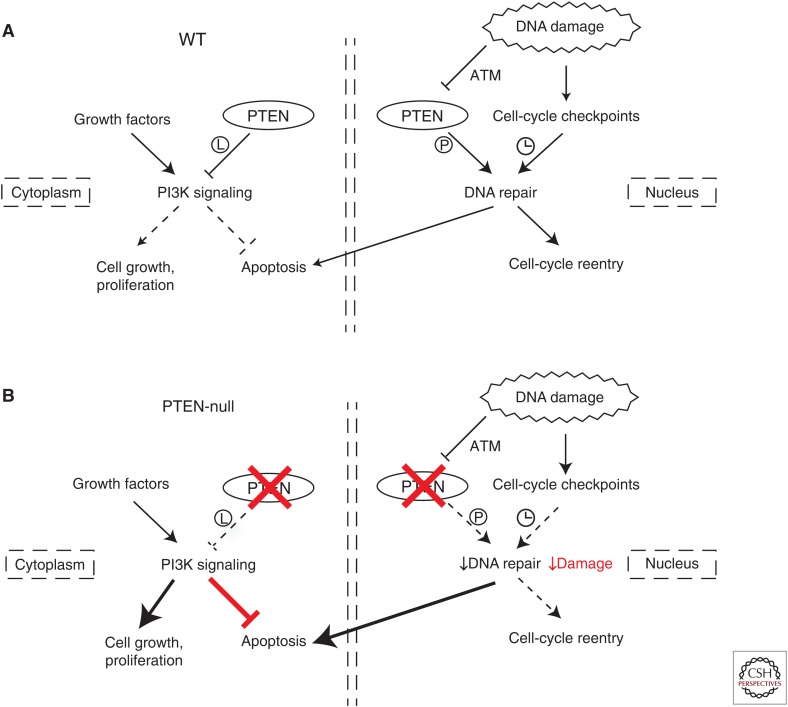Figure 2.
PTEN deficiency drives a progrowth, antiapoptotic and DNA damage-prone phenotype. (A) In PTEN wild-type (WT) cells exposed to genotoxic stress, PTEN coordinates a cellular response that determines the balance between “DNA repair and survival” and “DNA damage and apoptosis” outcomes via lipid phosphatase-dependent regulation of PI3K signaling in the cytoplasm and protein phosphatase activity-dependent regulation of the DNA damage response (DDR) in the nucleus. (B) In PTEN-null cells exposed to genotoxic stress, loss of cytoplasmic PTEN function drives hyperactivation of the progrowth and antiapoptotic PI3K/Akt signaling pathway while loss of PTEN nuclear function leads to accumulation of DNA damage. The increase in apoptotic signals emanating from failure to repair DNA is countered by constitutive activation of PI3K/Akt survival signaling, allowing unrepaired cells to reenter the cycle despite accumulating irreparable DNA damage and further contributing to the diseased state. (L) lipid phosphatase activity, (P) protein phosphatase activity.

